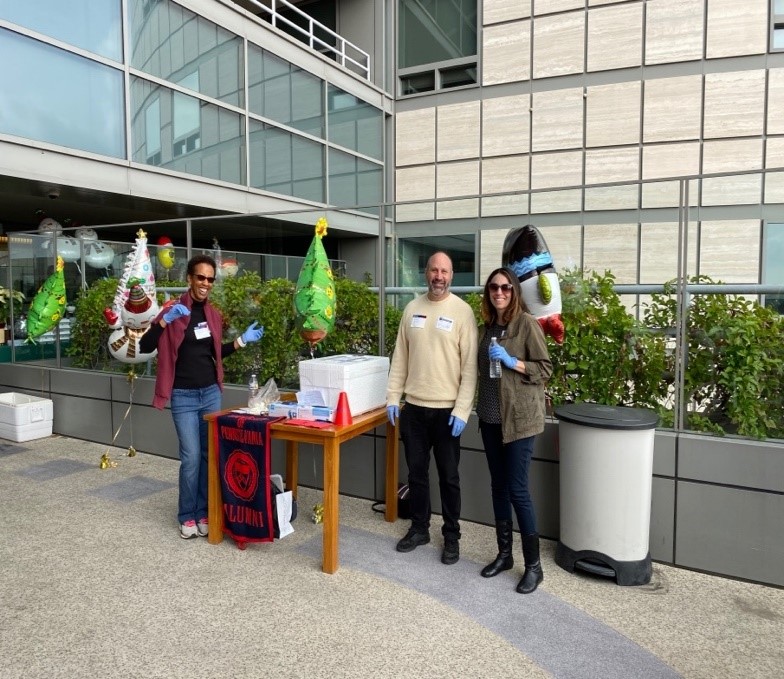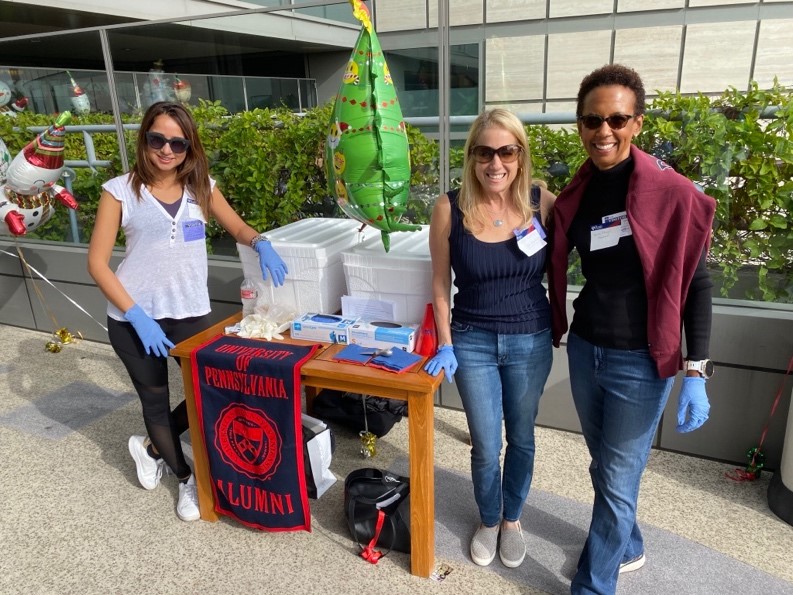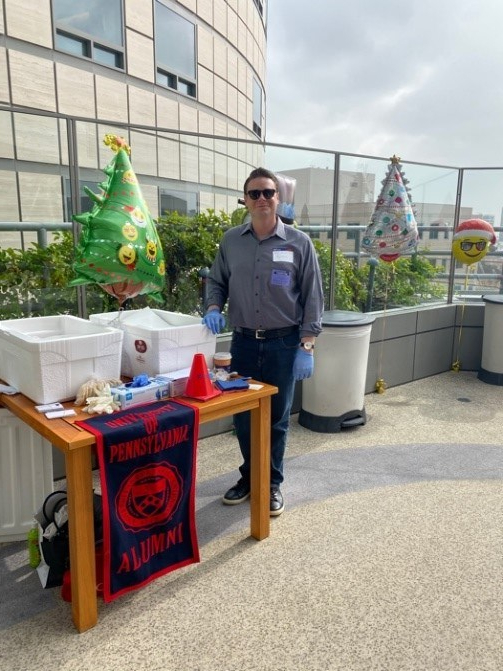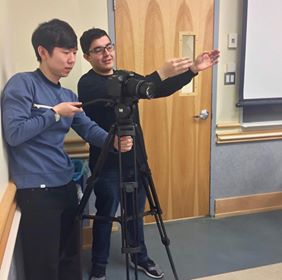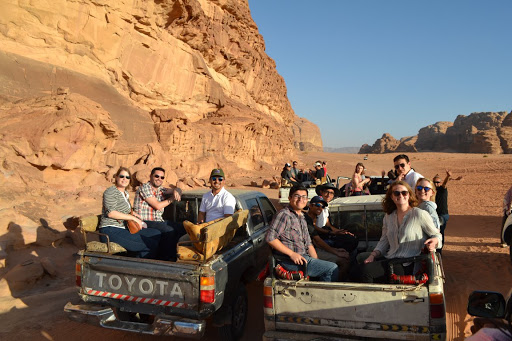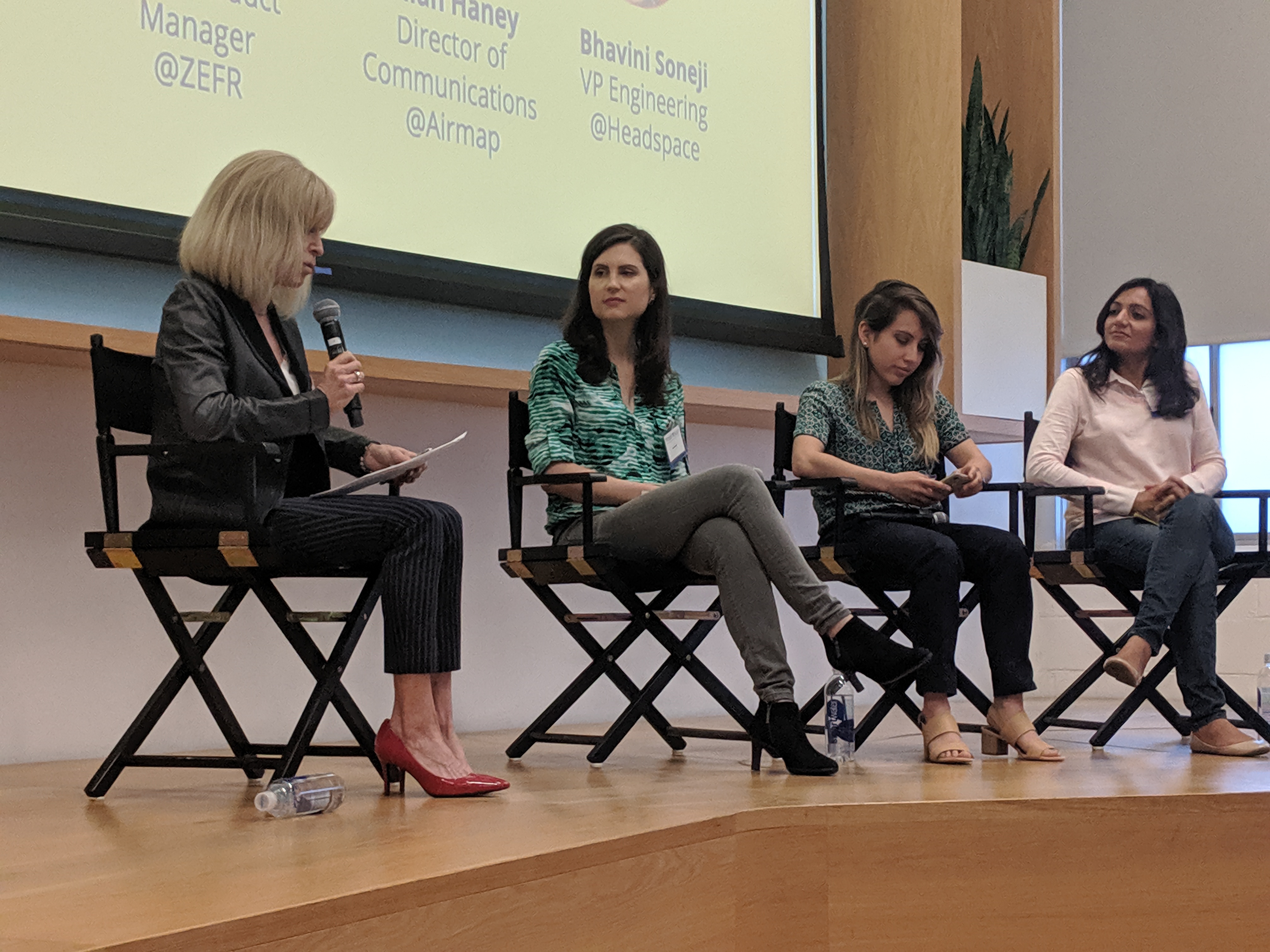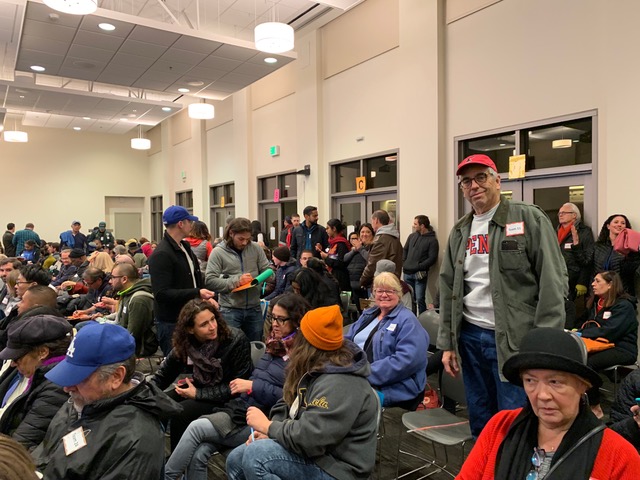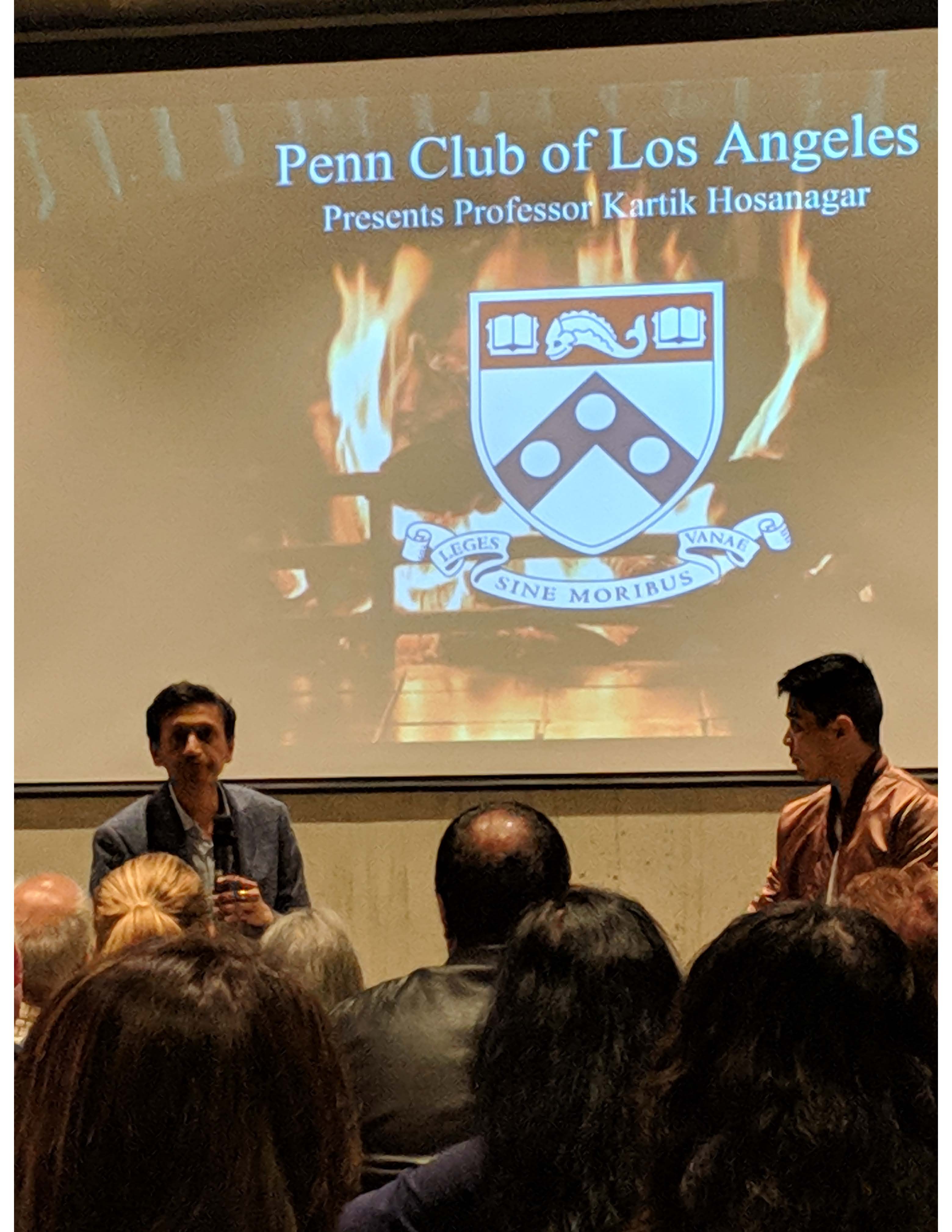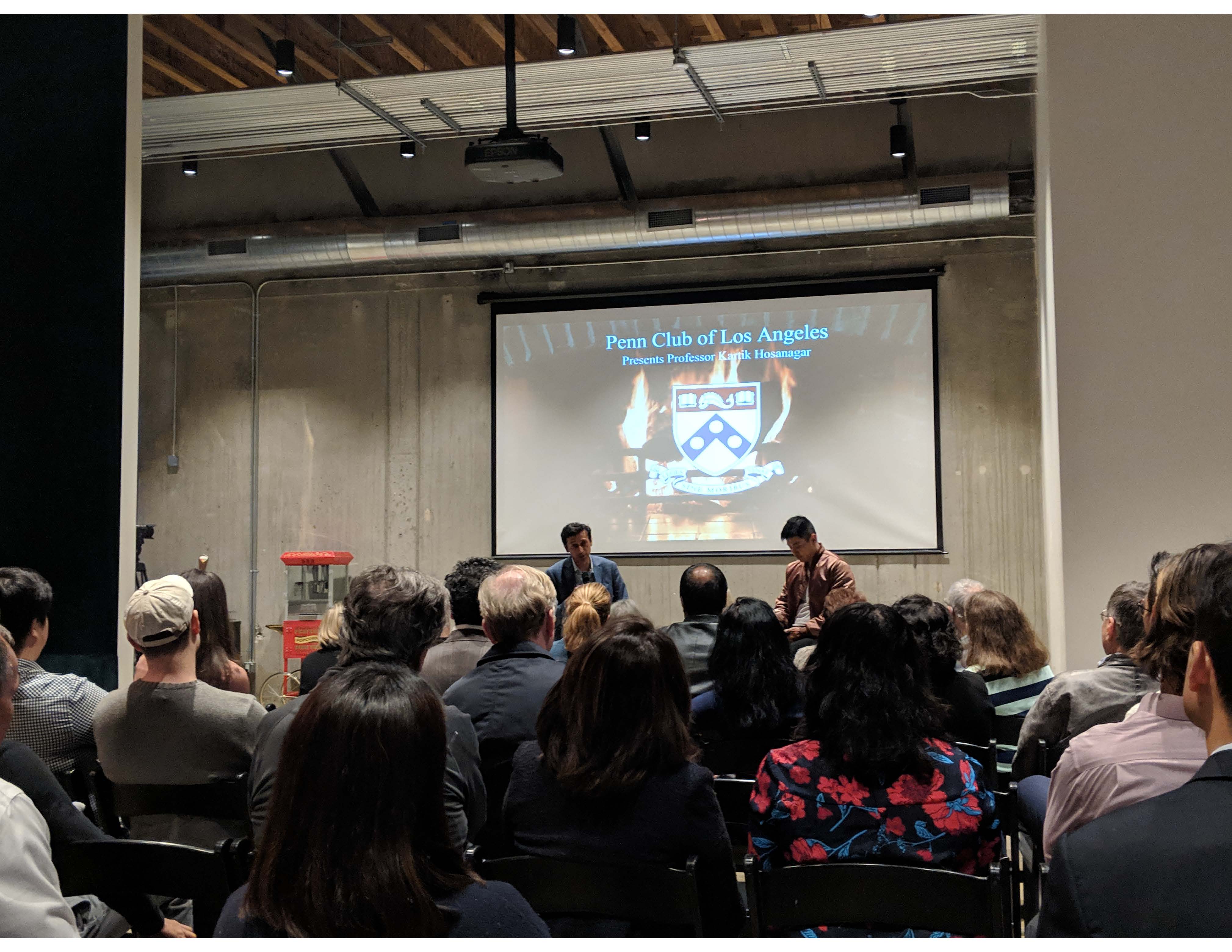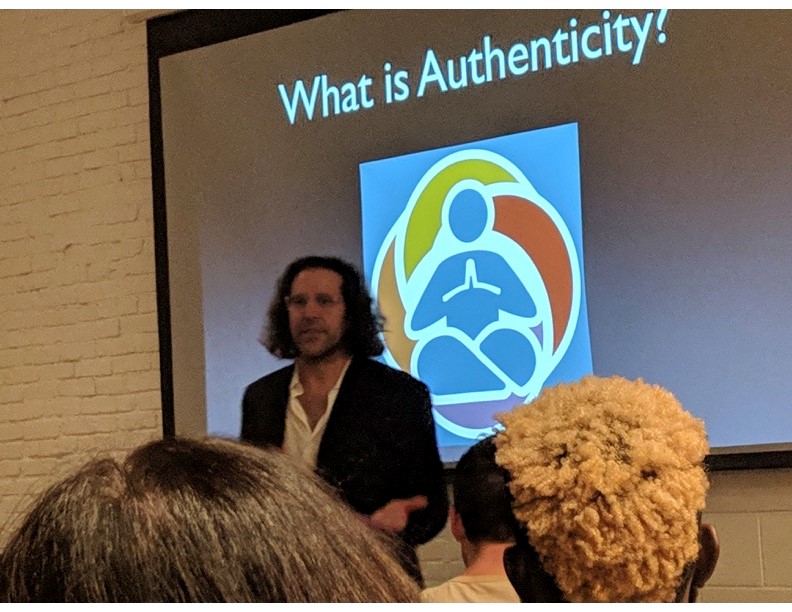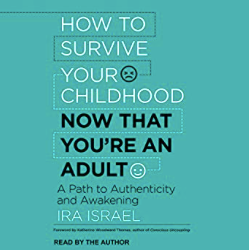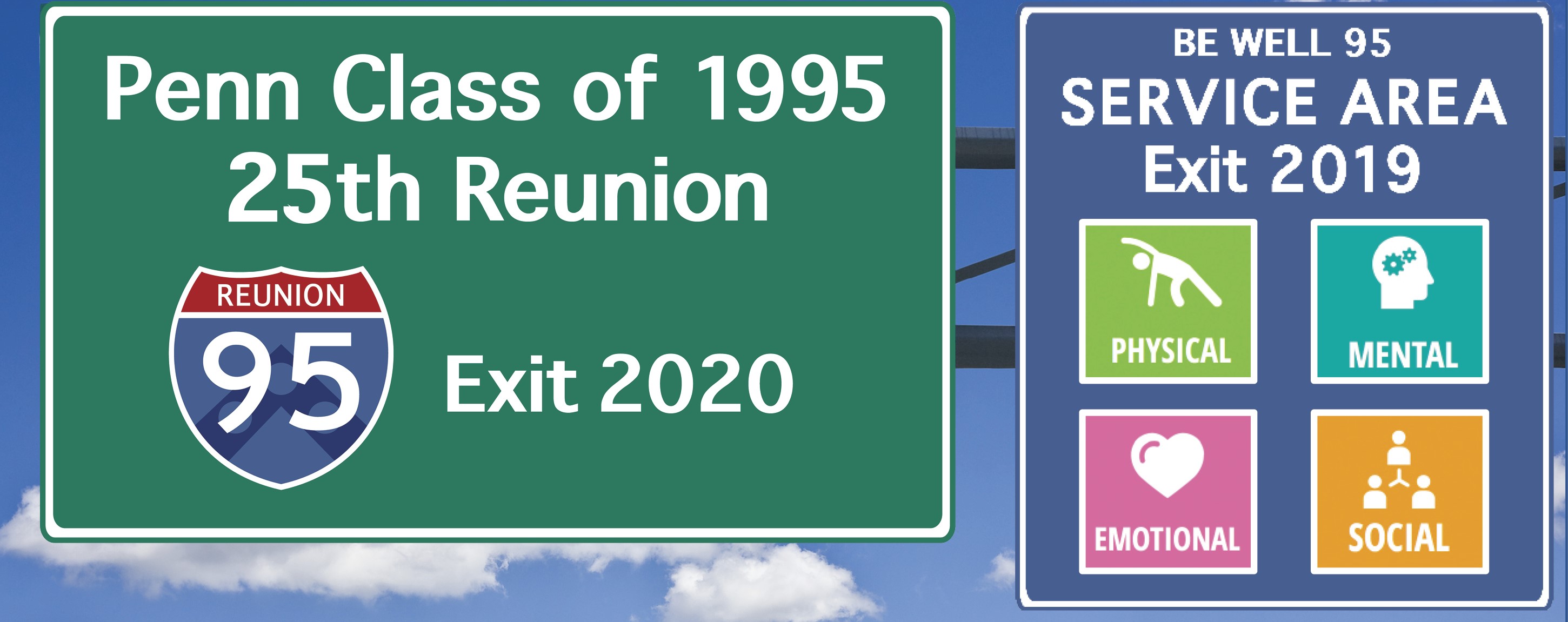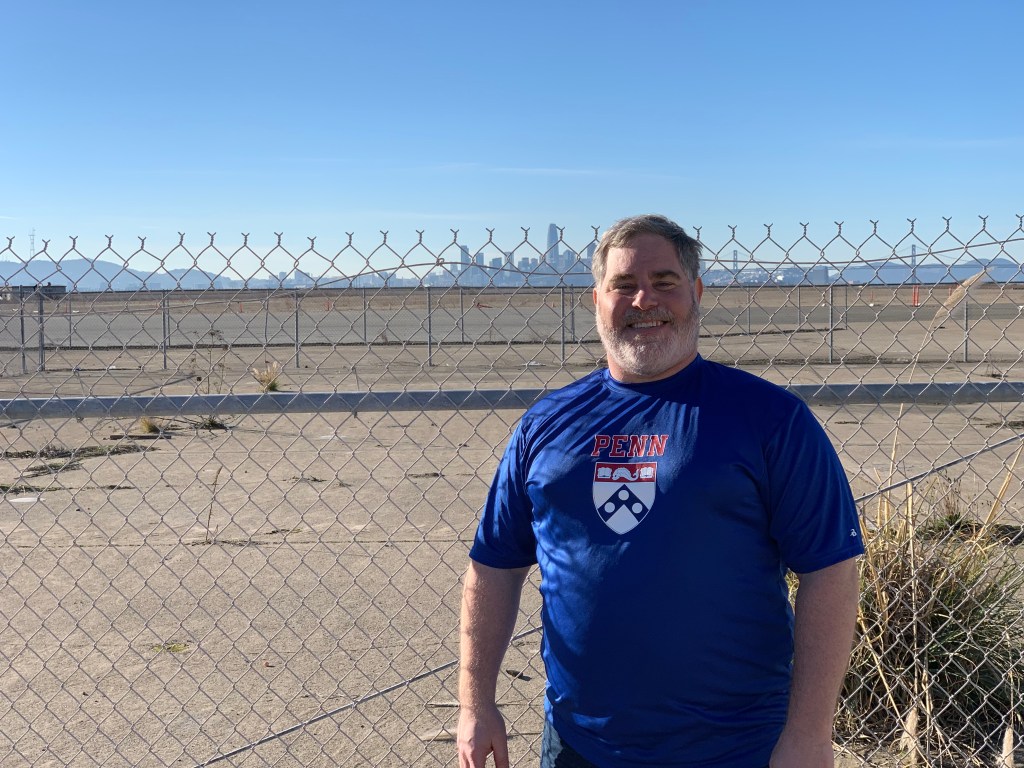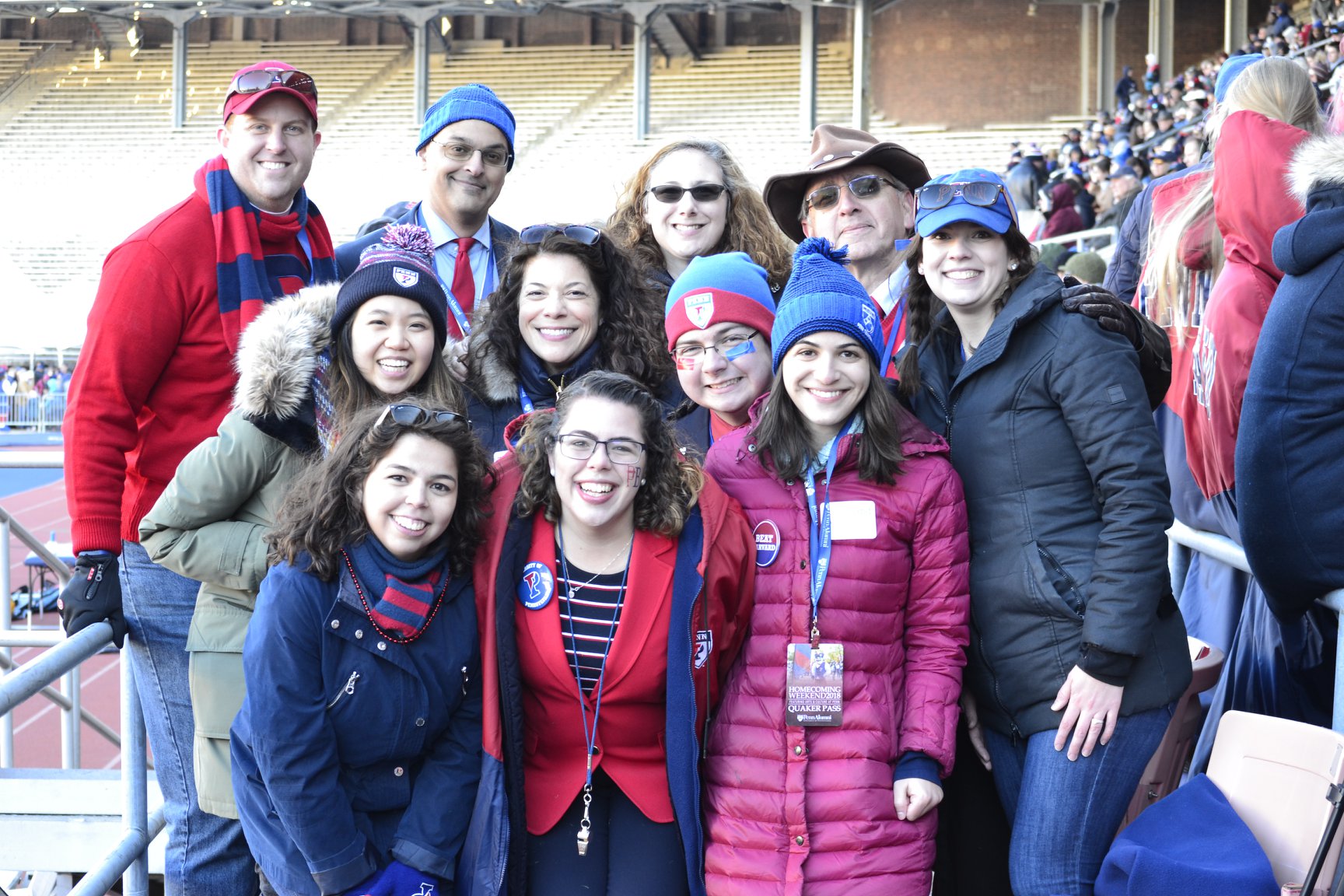by Nicole C. Maloy, M.S, W’95, SPP’18
Recall the calming voices and speech patterns of PBS icons Bob Ross and Mr. Rogers, add a medical degree, and top with a former Directorship of Medical Student Education in Psychiatry at Penn Medicine. You can now begin to imagine what it is like to be in the presence of Dr. Benoit Dubé.
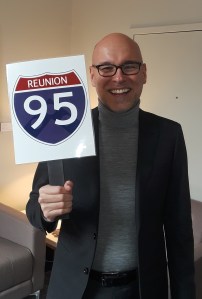
Nicole Maloy: Greetings. Would you please introduce yourself?
Dr. Benoit Dubé: Good afternoon. My name is Benoit Dubé. I am the University’s Chief Wellness Officer and Associate Vice Provost.
Nicole Maloy: What does it mean to be a Chief Wellness Officer?
Dr. Benoit Dubé: That is a simple question on the surface, but is actually something that we are figuring out beyond the general campaign for wellness that really spearheaded the creation of this position and the reorganization of our health & wellness services. This position didn’t exist before, so I have both the privilege and the daunting task of defining what it is exactly that it means. And while it’s a simple question, the answer has multiple layers because, as the university’s Chief Wellness Officer, I am responsible for the entire Penn community. So that means students, that means staff, that means faculty. And even that is an oversimplification because if we just limit ourselves to students, there’s over 25,000 [Ed. total undergraduate + graduate & professional, full time + part time], and of the 25,000 there are 12 different schools, and we have to be very humble and acknowledge that there is not a wellness solution for students. Maybe 25,000 wellness solutions, but we have to identify the common thread.
We have to create a space where synergies can happen. We have to create an environment where innovation and collaboration are fostered, nurtured. If the School of Nursing, who has learners across the whole spectrum, has initiatives that have been successful for them, then we must provide them with the resources so that the College can share some of the applicable resources, and so on and so forth.
And you’ll notice that I’ve just been talking about students. We can talk just as much and wax and wane poetic about staff. If we don’t address the wellness needs of staff, we can’t expect staff to promote a wellness culture for students. And then there’s faculty. So, thank you for allowing me to explain why it is a complicated question. It’s both thrilling and exciting to create something new, but the emphasis is on creating something that wasn’t there, that was implied, but has now been given its place at the table.
Nicole Maloy: And you mentioned the campaign for wellness. Can you tell us more about that? What should alumni – and anybody who’s interested in Penn – know about this campaign?
Dr. Benoit Dubé: So, the campaign for wellness is a multifaceted initiative and effort that was spearheaded by the President and the Provost in 2017 to really start creating community. To engage members – its members – in dialogue. Dialogue that values and cherishes vulnerability, that reframes stress and struggles as opportunities for growth, that reminds all of us that we are in this together.
The world is a stressful place. It’s not stressful because of politics exclusively, which is the go-to, right? But if we even remove politics from the world, it’s really stressful to keep up. We’re connected always. Are we missing out on anything? Are we responding quickly enough? E-mail. E-mail was touted as making workers more efficient. Nobody likes e-mail. I mean, everybody hates e-mail, but we all e-mail all the time. Is it OK not to e-mail my boss, or my professor, or my students after 5? Over the weekend? We’re learning this. Technology has forced us to adapt faster than we have actually been able to adapt in recent history. That’s why the world is stressful.
We’re dealing with new, unseen political situations. Look at what’s going on, the divisive political agendas that people are grappling with. All of these things make us collectively all of us, red and blue – we’re talking about Penn here, not politics – they make us stressed out. How do we feel that we have agency in all of this? How can we give ourselves permission to slow down? These are the hot topics that we’re trying to figure out.
Penn is uniquely positioned to offer solutions. If we take a step back, what we want to do is offer our learners the skills and tools they need to be successful academically. That is not new. But the rules have changed because of expectations, because of how quickly information spreads, how reactive people have become. We want to give our learners, our graduates, the skills and tools so that they can go out and continue to make the world a better place. That’s what Benjamin Franklin said. By the way, happy birthday Ben! It’s your 313th birthday today. So, that’s collectively, big picture, what we want to do. We want to use the remarkable resources we have here to make the world a better place so that our graduates can go out and become change agents. So that we get to tame our inbox. So that we become better equipped at integrating self-care with ambition.
Nicole Maloy: Integrating self-care with ambition. Oh, that’s fantastic. So, speaking of graduates, we can now move into the world of Penn alumni, who are all around the world doing all manner of different things. What can we learn from what you’re doing and what Penn is doing around wellness in general, and how can we better balance our ambition with our self-care?
Dr. Benoit Dubé: What I have learned, and what I have benefited from, is the importance of listening. And let me qualify that because it sounds like it’s a simple, rehearsed talking point, but it’s actually not. Your question led me to pull a few things together. I’m relatively new to this. I’m not new to the Penn community, but I’m new to this role, I’m new to this mandate and these tasks. And the first thing I decided to do was, well, you know, we’re not starting with a blank slate here. Penn has done wonderful wellness-related things. So, before I start asking for resources to create new things, I need to start from a position of humility and say, hey, what great things are we doing now? Can we make them greater? And then decide what new things we should be doing. And the only way we can figure this quandary out and resolve it is by listening.
Right now, I’ve mostly been listening to students. Remember, there are 25,000 of them. So, I’ve been on a listening tour, and I’ve heard successes, I’ve heard challenges. And by listening to the students, by being present in the moment without judgement or expectations, it’s reminded me that I need to listen to myself. I need to give myself permission to manage my own expectations, to realize that this is not a 6-month contract. This is a commitment. There is not going to be one solution. There will be many, and I need to remind myself of that. Because there may be a little bit of pressure associated with this new job, right? And as I listen to students, I’ve been reminded that I also need to listen to myself and give myself permission to be patient, to think through things, to really reverse this cycle of reactivity. Just because we’re connected quickly, instantly with each other doesn’t mean that I’m expected to have the answer by the next school year. I can be reflective, contemplative, and realize that it’s not just a one-person thing. We are part of a community. Which brings me back to your question.
The worldwide community of Quakers is still accessible, and technology, in this case, does facilitate the creation of community, the pool of resources, the creation of collaborations that may not have been otherwise possible absent e-mail, absent instant message, Facebook, and other social media tools. That’s how what I’ve learned in my first few months in this role can be applied to graduates and alumni. We are part of a community. The wellness quandary, the wellness challenges, solutions we need to identify, are not one person’s goal. We will figure this out together by valuing humility, by recognizing and allowing vulnerability to be part of our dialogue. Not to create a culture of “woe is me,” but rather for people to be comfortable enough to say, “This is challenging for me, and this is how I’ve overcome the challenge,” so that others on the receiving end of this conversation can pick and choose what works for them.
“We can change and forge a new lens that allows us to see stress as an opportunity for growth. If we approach a stressful situation this way, we’re much less likely to become overwhelmed. It’s not going to make it easy, but it will make it easier. And that is within our power.”
Dr. Benoit Dubé: You know, when we talk about wellness, usually within the first five minutes we talk about mindfulness meditation and yoga. OK? So, a little bit of self-disclosure here, I hate yoga.
Nicole Maloy: (Laughter)
Dr. Benoit Dubé: I’m terrible at it. It stresses me out.
Nicole Maloy: Yoga stresses you out.
Dr. Benoit Dubé: It totally does. Like, I cannot touch my toes. I’m just not a flexible guy. But, I don’t know, maybe you like yoga, right? Maybe, for you, being in the moment, being at peace with your body, being connected inwardly is the perfect solution to give you respite from the stress of the outside world. Doesn’t work for me. At all. So, there is no wellness solution. There must be wellness permissions that we must give ourselves. And a lot of it is trial and error. Of course, everybody’s going to try yoga and mindfulness meditation first. And by the way, mindfulness meditation is easy to say – it takes practice. You get better at it over time. Guided breathing for me, like, 2 minutes, 3 minutes, 5 minutes every hour, does the trick. I breathe better than I stretch.
Nicole Maloy and Dr. Benoit Dubé: (Laughter)
Dr. Benoit Dubé: I have learned through experience that yoga was just not the thing for me. Am I going to mandate guided breathing exercise for everyone? Of course not. Because other people may have my yoga reaction to this solution. But maybe if they hear this, it’s going to be another tool in their toolbox as they try to give themselves permission to find their solution.
Nicole Maloy: So, what you would advise alumni to do is to be active members of the community so we can share our experiences with other alumni, with students, staff, and faculty, to be open to other people’s experiences so we might learn from them, and also to balance self-care and ambition, and give ourselves permission to be vulnerable, to try new things to see what works for us.
Dr. Benoit Dubé: Oh, absolutely. And to always remember that stress is a part of life. We must expect it, we must embrace it rather than fear it. And we have the ability to change our perception. We can’t change the facts, but we can change and forge a new lens that allows us to see stress as an opportunity for growth. If we approach a stressful situation this way, we’re much less likely to become overwhelmed. It’s not going to make it easy, but it will make it easier. And that is within our power.
Nicole Maloy: For our pre-reunion year in the Class of ’95, we’ve asked our classmates to identify something that is within their power to improve or change, or at least focus on more, in a few key areas of health, whether physical, mental/emotional, or social. How can we best identify the things that are within our control and things that aren’t to reduce the frustration of identifying an area to improve?
Dr. Benoit Dubé: That’s really interesting because I don’t think there’s a master key here, I don’t think that there is one directive or one solution. Rather, each alum should give themselves permission to just try different solutions on for size and see what works for them. The subjective experience is what’s going to determine what is the best fit. It’s ultimately about giving folks the ability to, through lived experience, come to the realization that this is helpful and this is not.
Maybe yoga works for some people, but it’s not within your control whether or not you can escape to the gym during your lunch hour because of things that you have no say over, right? So, your boss may not let you take a lunch break that allows you to leave the office. Or maybe if that’s possible, maybe there’s not a shower facility that you have access to so that you can come back refreshed. So, while deciding that yoga works for you, whether you can do that during the weekday may not be under your control. And all of these things each alum will figure out and come to that realization. A simple solution would be, well, go after work, or go before work, or do something else.
You touched on community, and I think that this is where we have the biggest challenges despite having the easiest solutions at our disposal. The biggest challenge is because, in the digital era, in a world where social media essentially guides what we do, we’ve become very individualized. And we’ve lost some of our socialization skills. How do we stay in touch? Through Facebook. And that’s fantastic because we couldn’t do that before. But we forget to nurture our relationships that are closer. These are the relationships that we tend to neglect because we’re so drawn by the awesomeness of being able to connect with our college buddies all over the world. I’m not saying to stop doing that, but in the process not forget about your inner circle. You need to prioritize. We are dealing with a slew of demands, professionally, personally, and that maybe we can’t do it all, and that we have to decide, OK, there’s an order here. First, take care of yourself. It’s not about being selfish or entitled. It’s about making sure that you can take care of other people.
Nicole Maloy: Put on your mask before you put a mask on the person next to you.
Dr. Benoit Dubé: That’s exactly where I was going with that. So, if you put the oxygen mask on your traveling buddy, well, then you may not be around to take care of them after the fact. So that’s why self-care is important. It’s about prioritizing. And prioritizing relationships. Finding meaning in what we do. Seeing purpose beyond ourselves. Giving back to the community. Those are values that I hope that have been ingrained in all of our alum, but we need to remember, the world is going on like really fast and sometimes we forget. Sometimes doing nothing is the best thing we can do to re-center, refocus, recalibrate, and then go about your day after that. That’s what deep breathing does for me. It stops the noise, outside, inside, and then I can move forward.
Nicole Maloy: You’ve touched on the fact that yoga is not your thing, but deep breathing is, so that fits into that mental and emotional health piece. What is something, if you’re comfortable sharing, that you do to promote your social health, and something you do to promote your physical health?
Dr. Benoit Dubé: So, physical health, I like to run. And running on city sidewalks is no longer a thing for me because my knees are telling me that’s not a good thing, so I’ve learned to adapt to the treadmill and to books on tape. (Laughter) I have also, as I’ve grown older, needed to make adjustments to what I eat, and concentrated sweets don’t agree with me anymore. And that was not within my control. I had to adapt, I had no choice.
Social health – I think that my professional responsibilities have allowed me to thrive in that respect. In the responsibilities I have been given at Penn, I get to meet outstanding, brilliant, creative, and innovative students all the time. And that is something that is energizing for me. It’s a source of inspiration, creating a community that didn’t exist before. It’s very energizing for me to be asked to do that.
The other life hack I’d like to share with you is, I am an avid traveler. I love to travel. And so one of my life rules is before you end your current vacation or your current trip, you must know where your next one is. You must always have a reward for yourself. You must always be working towards something. Because, hey, there will be stress. There will be challenges. But if you know that you will be rewarded, there’s something you’re looking forward to. That’s a life rule that I figured out a while back.
Nicole Maloy: Wonderful. Well, thank you so much, and have a wonderful spring semester.
Dr. Benoit Dubé: Thank you. It was a pleasure chatting with you.
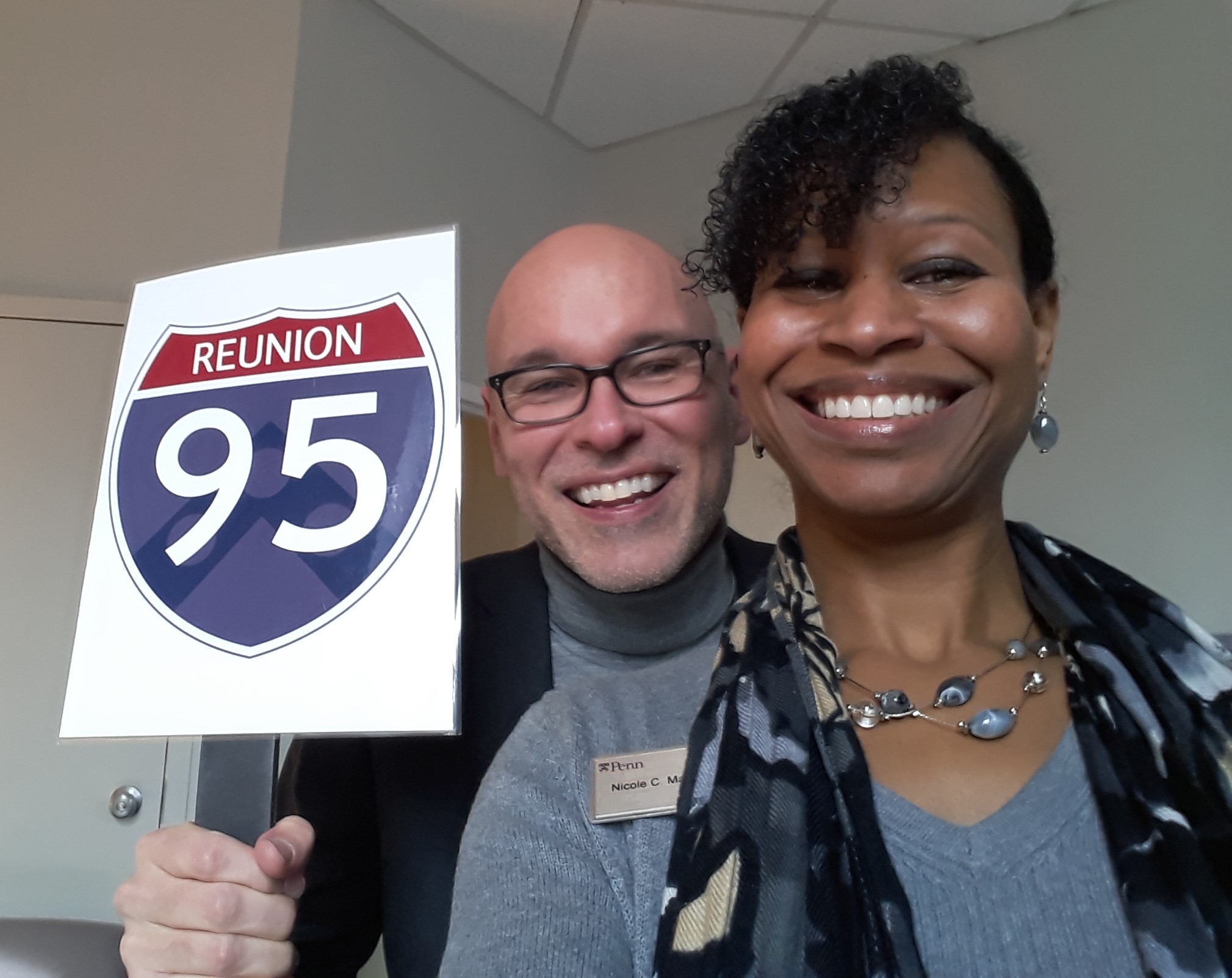
Nicole Maloy is a Penn Class of 1995 Reunion Co-Chair. Through the Be Well Penn ’95 Wellness & Self-Care Initiative, she, Casey Ryan, C’95, and Jordana Horn Gordon, C’95 urge their classmates – and the entire Penn alumni family – to be both thoughtful and proactive about making mental, emotional, physical, and/or social health a higher priority in 2019.


Time flew by in this rich conversation, and the recording of the event is available to all active members of the Penn Club of LA, The Wharton Club of Southern California and the MIT Club of Southern California.

